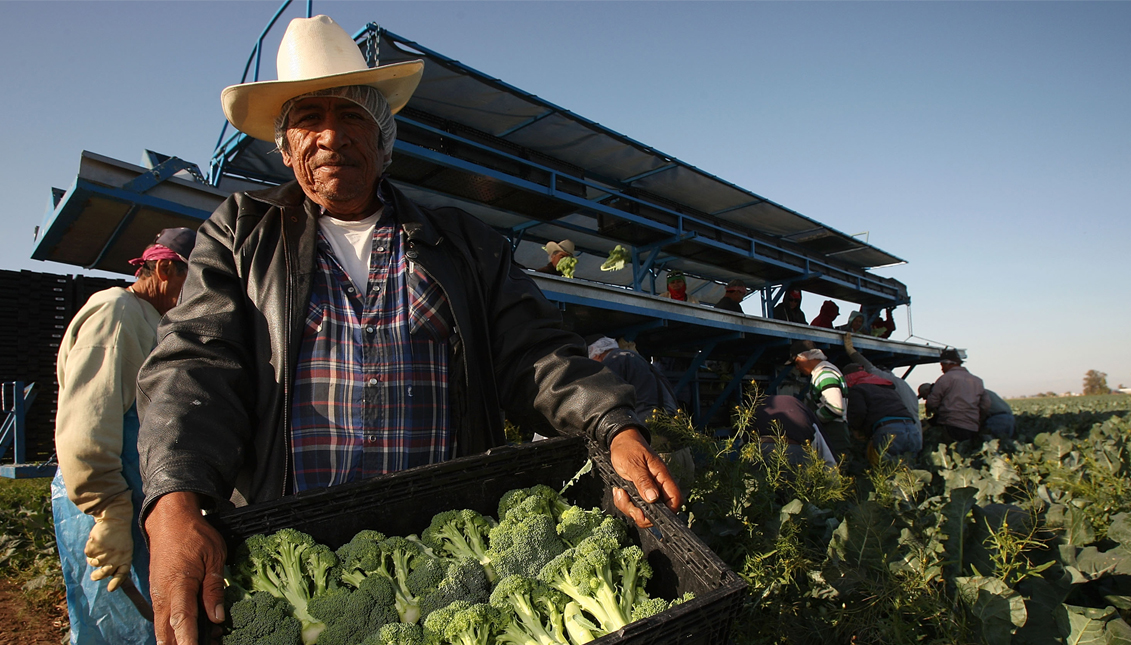
New support groups being offered to farm workers via Zoom
The Healing Voices Project is helping farmworkers through the trauma of the past year.
It is quite often that farmworkers in the U.S. face some kind of mental or physical trauma that leaves them with anxiety and/or depression.
Many workers bear the brunt of ICE, and spend hours on edge wondering if today will be the day they will be forced to go back to the countries they've escaped from.
"Those are all traumatic circumstances that they're weighing and carrying every day," says Mónica Ramírez, a civil rights lawyer and founder of Healing Voices Project.
Her organization has launched a series of support groups to give farmworkers resources for mental health and support.
Ramírez and actress Eva Longoria-Bastón have taken the initiative to create the grassroots nonprofit organization to provide farmworkers with access to the mental and health care that most desperately need.
Data provided by Purdue University estimates that more than 480,000 agricultural workers have tested positive for COVID-19 nationwide, but this figure likely greatly underestimates the number since it excludes contracted and temporary labor.
Over 69% of farmworkers in the U.S. come from Mexico.
“It is the very first of its kind, we are going to offer virtual mental health work to our farmworkers,” Longoria-Bastón said in an interview with MSN. “We will be offering free group therapy through Zoom to help deal with long-term trauma and recent trauma.”
The pilot period will begin in June.
All therapists and counselors will be bilingual and have the proper tools to engage with the participating workers.
If individuals don't have access to a laptop or Wi-Fi, they will be provided with a stipend to cover all costs.
Mónica Ramírez says the Healing Voices curriculum will focus on four core pillars that were created by licensed therapists working with the nonprofit.
They are parenting, planting relationships, group therapy, and partnering.
RELATED CONTENT
“The different modalities are going to be role-playing, breathwork, meditation, and storytelling, there are going to be very interactive sessions,” Ramírez said.
Some sessions will be clinical and some will not, but many of these healing models will give farmworkers the space to open up and share their stories and experiences.
For many years, farmworkers are left with grueling and harmful conditions, leaving men with illnesses from dangerous pesticides and chemicals.
Many farmworkers who have families have stressed amid the ongoing COVID-19 pandemic over the fact that many cannot afford a decent laptop or have no access to Wi-Fi due to low income.
“It was also very difficult for farmworker parents because most of them do not speak English, so it was almost impossible for them to help their children with homework,” Ramírez to MSN.
Another major setback amid the COVID-19 pandemic for farmworkers was their lack of babysitters and child care facilities.
“We talked to parents about making the difficult choice to take their children to work and expose them to dangerous and harmful circumstances, or even leave them at home.” said Ramírez.
“Both decisions have been extremely difficult.”
She also wants to expose the hardships that farmworkers have to go through. Between the mental trauma and low-wage payments, she hopes to show employers that this is not the way to treat their employees.
“This is the kind of support that they really needed for a long time because their work conditions have always been hard,” said Ramírez.











LEAVE A COMMENT:
Join the discussion! Leave a comment.